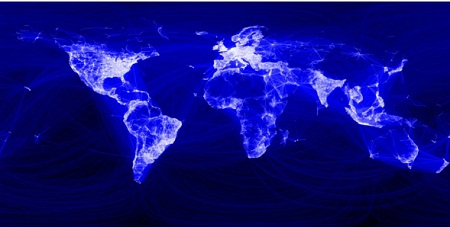Facebook has joined with Samsung, Ericsson, MediaTek, Nokia, Opera, and Qualcomm to from Internet.org, a project dedicated to getting the internet to the five billion people who cannot get access to it.
Watch this video promoting the initiative below:
This coalition will work together on data-compression technologies as well as cheaper smartphones to make the web cheaper overall.
In five to 10 years, Internet.org hopes to reduce the cost of providing mobile internet by 99%.

Announcing the new initiative, Mark Zuckerberg, CEO of Facebook, said: “There are huge barriers in developing countries to connecting and joining the knowledge economy. Internet.org brings together a global partnership that will work to overcome these challenges, including making internet access available to those who cannot currently afford it.”

Internet.org went live early Wednesday with a site promoting the project.
The three major initiatives of the partnership are:
1. Making access affordable through cheaper smartphones, and working with mobile operators to extend Internet access to underserved communities.
2. Using data more efficiently so people don’t run up high costs. Internet.org partners may look to build data-compression tools, bolster network efficiency, and improve data caching.
3. Helping businesses drive access to grow mobile businesses sustainably. Partners will aim to create mutually beneficial incentives for app developers, device OEMs, and operators that will get more people online. The companies will also work together to help mobile devices support more languages to demolish barriers to usage.
Zuckerberg cites a McKinsey study illustrating that the Internet accounts for 21% of GDP growth in developed nations over the last five years, and only one job is lost for every 2.6 jobs created by the Internet.

Different from Google’s Project Loon
Unlike Google’s Project Loon – which aims to extend internet access in remote areas across the developing world by sending large balloons into the sky – Internet.org seeks to improve efficiency through better programming.
Facebook is trying to streamline its mobile app so that it consumes less internet bandwidth and is therefore cheaper to run for users paying by the megabyte.
Smartphone makers are trying to design handsets that have longer battery lives and draw internet bandwidth more efficiently.
“The goal of Internet.org is to make Internet access available to the two-thirds of the world who are not yet connected and to bring the same opportunities to everyone that the connected third of the world has today,” Zuckerberg said.
The project focuses largely on mobile phone connectivity because billions of people in developing countries already use cell phones for talk and text. Smart phones are also more affordable than personal computers and they are often more practical in regions with spotty electricity.
Zuckerberg concludes his paper saying “I think that connecting the world will be one of the most important things we all do in our lifetimes, and I’m thankful every day to have the opportunity to work with all of you to make this a reality.”
http://www.internet.org/
